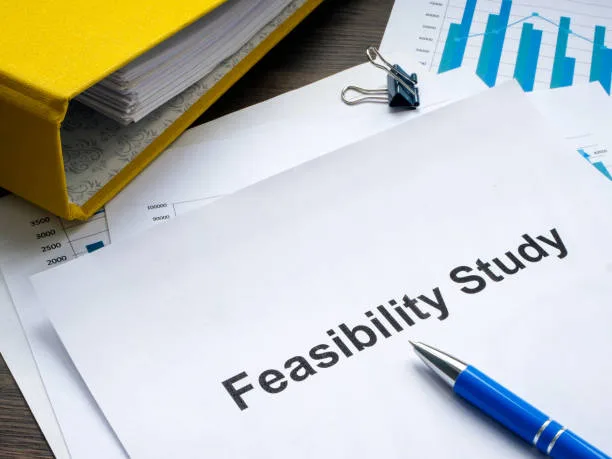Phone: +966-50-7024644 | Email: info@ghalibconsulting.com
Table of Contents
Financial Feasibility Study in Dubai: 7-Step Guide for Business Success | Ghalib Consulting
A Financial Feasibility Analysis is a critical tool for determining whether a business idea or project is viable before investing time and capital. For entrepreneurs and investors in Dubai, conducting a thorough feasibility study helps minimize risks and maximize returns.
At Ghalib Consulting, we specialize in guiding businesses through structured financial feasibility assessments. This article outlines the key steps involved in conducting a financial feasibility analysis and why it’s essential for success in Dubai’s competitive market.
https://images.unsplash.com/photo-1454165804606-c3d57bc86b40?ixlib=rb-1.2.1&auto=format&fit=crop&w=1200&q=80
Image: A well-structured feasibility study reduces investment risks.
Step 1: Define the Project Scope
Before diving into financials, clearly outline:
✔ Business Objectives – What problem does the project solve?
✔ Target Market – Who are the customers in Dubai?
✔ Project Timeline – Short-term vs. long-term goals.
Why It Matters?
A well-defined scope ensures the study remains focused and relevant.
Step 2: Market Research & Demand Analysis
Dubai’s dynamic economy requires deep market insights:
✔ Industry Trends – Is the sector growing or saturated?
✔ Competitor Benchmarking – Who dominates the market?
✔ Customer Demand – Surveys, focus groups, and sales forecasts.
https://images.unsplash.com/photo-1551288049-bebda4e38f71?ixlib=rb-1.2.1&auto=format&fit=crop&w=1200&q=80
Image: Market research validates business potential.
Step 3: Financial Projections & Cost Estimation
A. Revenue Forecasts
- Sales projections (optimistic, realistic, pessimistic scenarios).
- Pricing strategy (competitively aligned with Dubai’s market).
B. Cost Breakdown
✔ Startup Costs – Licensing, permits, equipment.
✔ Operational Costs – Rent, salaries, utilities.
✔ Hidden Costs – Compliance, taxes, contingencies.
Why It Matters?
Accurate projections prevent cash flow shortages.
Step 4: Funding & Investment Analysis
Where will the capital come from?
✔ Self-Funding – Personal savings or business revenue.
✔ Investors & Loans – Bank financing, venture capital.
✔ Government Incentives – Dubai SME grants, free zone benefits.
https://images.unsplash.com/photo-1460925895917-afdab827c52f?ixlib=rb-1.2.1&auto=format&fit=crop&w=1200&q=80
Image: Dubai offers multiple funding avenues for businesses.
Step 5: Risk Assessment & Mitigation
Identify potential risks:
✔ Market Risks – Demand fluctuations.
✔ Regulatory Risks – Changing Dubai business laws.
✔ Financial Risks – Interest rate hikes, inflation.
Solution: Develop contingency plans for each risk.
Step 6: Break-even & ROI Analysis
✔ Break-even Point – When will the project start making a profit?
✔ Return on Investment (ROI) – Is the project worth the capital?
Example: A Dubai café may break even in 12-18 months depending on foot traffic.
Step 7: Final Report & Decision-Making
Compile findings into a professional feasibility report covering:
✅ Executive Summary
✅ Financial Projections
✅ Risk Analysis
✅ Go/No-Go Recommendation
Why Choose Ghalib Consulting for Feasibility Studies in Dubai?
We offer:
🔹 Data-Driven Financial Models
🔹 Dubai Market Expertise
🔹 Risk Mitigation Strategies
📞 Contact Us Today:
📧 ghalib@ghalibconsulting.com | 📞 *+966-50-7024644*
Conclusion
A Financial Feasibility Analysis is a must for any business in Dubai to avoid costly mistakes. By following these steps, entrepreneurs can make informed, profitable decisions.

